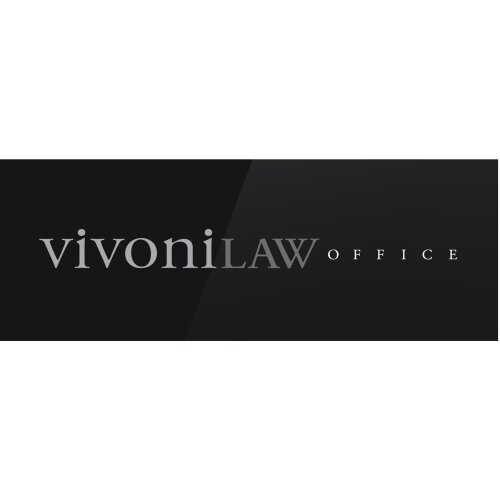Best Art & Cultural Property Law Lawyers in Puerto Rico
Share your needs with us, get contacted by law firms.
Free. Takes 2 min.
Or refine your search by selecting a city:
List of the best lawyers in Puerto Rico
About Art & Cultural Property Law in Puerto Rico
Art & Cultural Property Law in Puerto Rico encompasses a wide range of legal disciplines, including intellectual property, contracts, property rights, and cultural heritage protection. This field is crucial for safeguarding the cultural and historical belongings of Puerto Rico, which is rich in history and artistic heritage. The legal framework aims to protect artwork, artifacts, historical sites, and indigenous cultural expressions, ensuring that these treasures are preserved for future generations while respecting the rights of creators and owners.
Why You May Need a Lawyer
There are multiple situations where individuals or organizations might require legal assistance in the realm of Art & Cultural Property Law. These can include purchasing or selling artwork, which requires legal clarity on ownership and authenticity; disputes over cultural property rights or heritage site management; intellectual property issues related to reproductions or exhibitions; and compliance with local and international laws regarding cultural property. Lawyers specializing in this field can provide valuable guidance and help resolve disputes efficiently.
Local Laws Overview
In Puerto Rico, several legal frameworks apply to the protection and management of art and cultural property. These include the Puerto Rican Civil Code, which addresses property rights, and specific laws such as the Law for the Protection of Archaeological and Historical Properties, which safeguards Puerto Rico's cultural heritage sites. Moreover, intellectual property laws govern the creation and distribution of artistic works. The Puerto Rican Institute of Culture also plays a vital role in preserving and promoting the island’s cultural heritage. Understanding these local laws is essential for anyone involved in the arts or cultural property in Puerto Rico.
Frequently Asked Questions
What is Cultural Property Law?
Cultural Property Law involves the protection, preservation, and management of cultural resources, including art, artifacts, and heritage sites.
Do I need legal permission to sell artwork I own?
If you legally own the artwork, you typically do not need additional permission to sell it, though checking for any existing restrictions or conditions is advisable.
How are disputes over artwork authenticity handled legally?
Disputes over artwork authenticity often require expert evaluations, and legal outcomes depend on evidence, including provenance documentation and expert opinions.
What can I do if someone uses my artwork without permission?
If someone uses your artwork without permission, you can seek legal recourse through intellectual property laws to protect and enforce your rights.
Are there any international laws impacting cultural property in Puerto Rico?
Yes, international conventions like UNESCO's 1970 Convention on cultural property apply to Puerto Rico, affecting how cultural property is managed and protected.
What is the role of the Puerto Rican Institute of Culture?
The Puerto Rican Institute of Culture is responsible for preserving and promoting the island’s cultural heritage, including historic sites and cultural expressions.
Can cultural property be privately owned in Puerto Rico?
Yes, cultural property can be privately owned, but owners must adhere to regulations ensuring the protection and preservation of such properties.
Is it possible to export Puerto Rican cultural property legally?
Exporting cultural property from Puerto Rico is regulated, and it often requires permission from relevant authorities to ensure compliance with preservation laws.
What legal protections exist for artists' rights in Puerto Rico?
Artists are protected under intellectual property laws, which safeguard their rights to control the use and distribution of their works.
How can I verify the legal status of a historical artifact?
Verifying the legal status of a historical artifact involves consulting with legal experts and authorities who can assess its provenance and any legal claims.
Additional Resources
For those seeking further information or assistance, several resources can provide valuable insights and support:
- Puerto Rican Institute of Culture
- Office of the Comptroller of Puerto Rico
- American Bar Association - Art & Cultural Heritage Law Committee
- Intellectual Property Office of Puerto Rico
- Archaeological Heritage Protection Office
Next Steps
If you require legal assistance in Art & Cultural Property Law, it is important to consult with a licensed attorney who specializes in this area. Start by researching potential lawyers or law firms with established expertise in art and cultural property issues. Arrange a consultation to discuss your specific needs and legal options. Be prepared to provide relevant documentation and details of your situation to facilitate an informed legal assessment. Additionally, keep informed about any updates in local and international laws that may affect your interests in this field.
Lawzana helps you find the best lawyers and law firms in Puerto Rico through a curated and pre-screened list of qualified legal professionals. Our platform offers rankings and detailed profiles of attorneys and law firms, allowing you to compare based on practice areas, including Art & Cultural Property Law, experience, and client feedback.
Each profile includes a description of the firm's areas of practice, client reviews, team members and partners, year of establishment, spoken languages, office locations, contact information, social media presence, and any published articles or resources. Most firms on our platform speak English and are experienced in both local and international legal matters.
Get a quote from top-rated law firms in Puerto Rico — quickly, securely, and without unnecessary hassle.
Disclaimer:
The information provided on this page is for general informational purposes only and does not constitute legal advice. While we strive to ensure the accuracy and relevance of the content, legal information may change over time, and interpretations of the law can vary. You should always consult with a qualified legal professional for advice specific to your situation.
We disclaim all liability for actions taken or not taken based on the content of this page. If you believe any information is incorrect or outdated, please contact us, and we will review and update it where appropriate.
Browse art & cultural property law law firms by city in Puerto Rico
Refine your search by selecting a city.









